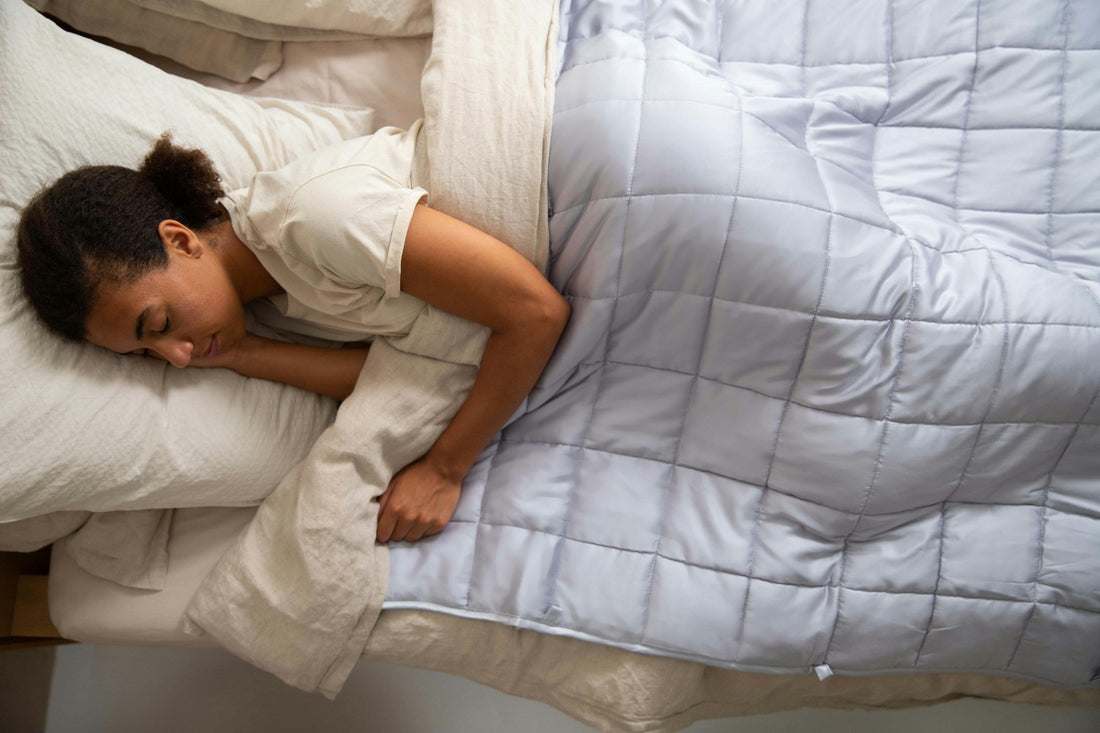Who is Prone to Insomnia?

Share
Understanding CBD, Marijuana, and Insomnia
The Rise of CBD and Marijuana in Health Treatments
The usage of CBD and marijuana for treating various diseases has significantly increased in recent years. CBD, in particular, is gaining recognition for its potential health benefits, especially in addressing symptoms like sleeplessness.
The Role of the Endocannabinoid System
Researchers have discovered that the endocannabinoid system plays a crucial role in maintaining key bodily processes such as mood, appetite, sleep, and circadian rhythm regulation. This system consists primarily of CB1 and CB2 receptors found in the brain and central nervous system. These receptors interact with cannabinoids and influence various physiological responses.
CBD’s Impact on Sleep and Insomnia
Evidence suggests that CBD may help manage insomnia and anxiety-related disorders. Many individuals experience occasional nights of poor sleep, but for some, insomnia becomes a chronic and disruptive condition. Causes of insomnia vary from one person to another—what affects a student might differ from what impacts a shift worker or frequent traveler.
The Effects of Insomnia
Insomnia can lead to a range of issues including lack of energy, memory and concentration difficulties, daytime sleepiness, and emotional disturbances. In more severe cases, it can result in accidents, reduced work productivity, and worsening of existing medical or psychological conditions.
Common Causes of Insomnia
Emotional Distress
Internalized anxiety, stress, or unresolved anger can quickly lead to difficulty falling or staying asleep.
Substance Abuse
High intake of caffeine through coffee, soda, and energy drinks can cause insomnia. Nicotine from cigarettes is another stimulant that disrupts sleep. Alcohol, despite its sedative effects, can interfere with sleep patterns once it is metabolized.
Biological Clock Disturbance
Circadian rhythm disruptions caused by irregular sleep schedules, jetlag, late-night activities, or shift work can lead to insomnia.
Environmental Factors
Uncomfortable temperatures, excessive noise, bright lights, and sleeping in unfamiliar environments may prevent restful sleep.
Health Problems
Medical conditions like diabetes, heart failure, hyperthyroidism, asthma, ulcers, Parkinson’s disease, chronic pain, and psychiatric disorders such as schizophrenia and depression can contribute to insomnia. Sleep apnea, restless leg syndrome, and narcolepsy are also known causes.
Pre-Bedtime Activities
Vigorous exercise or heavy meals before bed can activate metabolism and keep the body alert, making sleep harder to achieve.
Who Is Prone to Insomnia?
Studies indicate that about 90% of people experience short-term insomnia, while around 30% suffer from chronic forms. Women are especially prone due to:
-
PMS, which brings mood-related symptoms that disturb sleep
-
Menopause-related hormonal changes
-
Pregnancy-induced discomfort
Older adults also experience insomnia more frequently due to changes in sleep architecture. Students and individuals with academic stress may also develop insomnia due to cramming and anxiety.
Can CBD Help with Insomnia?
CBD oil is available in various concentrations, and while the optimal dosage for sleep issues is still being researched, trial and error can help determine what works best for an individual. Scientific studies support the idea that CBD may help improve sleep quality and reduce insomnia symptoms.
Final Thoughts
If you’re experiencing difficulty sleeping, it’s best to consult a doctor to explore the underlying causes and find appropriate treatments. CBD is showing promise, but professional guidance is always recommended.
We ensure our CBD products are safe and pure, verified through rigorous third-party lab testing. Place a few drops under your tongue to experience the effects. Enjoy FREE 2-day shipping on all orders above $100.
Join the Conversation
Did you find this article helpful? Share it with friends and visit us on Facebook or Instagram to learn more.
Affiliate Disclosure
Some product links in this article may generate a small commission at no extra cost to you. This helps support our research and editorial efforts. Rest assured, we only recommend high-quality products.
Disclaimer
The information in this article is not a substitute for medical advice. Consult your healthcare provider if you’re taking medication or have medical concerns. These statements have not been evaluated by the FDA. CBD products are not intended to diagnose, treat, cure, or prevent any disease. Individual results may vary.
